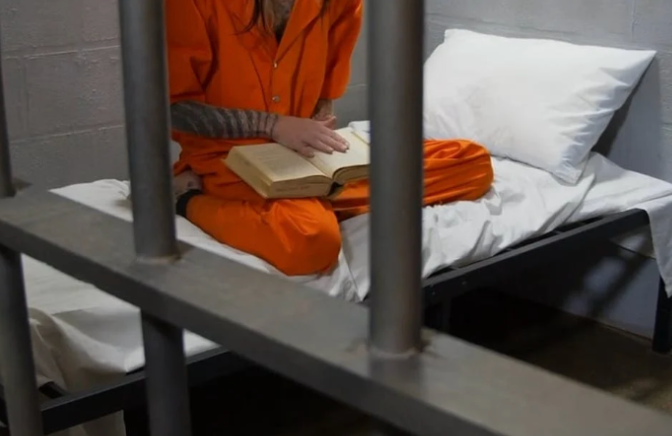Breaking bars with booksThe power of words to prevent crimes
- Hokyeong Kwon
- Aug 13, 2025
- 3 min read

Words on a page, to many, they’re just letters strung together. But for others, especially those who never had the chance to fully learn how to read, it feels like a foreign language. Only knowing what’s written in black ink are words, and the blank white parts are paper. And you’d be surprised to know that this is the case for most, even among those you least expect.
Before humans start to break the law, the first thing they break away from is their connection to education. The simple skill of reading letters and comprehending. That is why in some countries, they estimate the number of prison beds they’ll need in a decade based on how much 8 year olds struggle to read today. Now here’s the reality: high illiteracy rates are directly linked to higher crime rates. In fact, just adding more absurd punishments only increases recidivism with the mindset of retaliation, beating the delinquents up without actually helping them change.
This lack of education is what limits our opportunities for upward social mobility, leaving them vulnerable to poverty, social exclusion, and a sense of hopelessness. When 70% of inmates in American prisons cannot read above the 4th grade level, it’s clear that literacy and incarceration are closely linked. But when these individuals are given the ‘chance’ the rate of recidivism that was once 70 decreases drastically to 16. This just shows the brutal truth of our society. Even though there are options of rehabilitation, a second chance, and a new fresh start, prejudice is still in the air. Skeptical glances, judging only by their cover and rumors they hear.

Then there are also opposing views to this point. Saying that educating perpetrators will only increase crime rates. When crime was once a form of deterrence though punishment, now it’s an opportunity for free education. If criminals enjoy the time spent in prison, the cost of committing a crime also reduces, overall decreasing the time to rethink or regret their actions. What literacy programs argue then is the fact that once these criminals learn, they will now want to be a functioning member of society, giving them options. And even in an economic perspective, these literacy programs are the most cost effective method by paying back to our society upon an inmate’s release.
Now it comes to the question, why do people commit crimes in the first place? Of course there are some crimes that cannot be forgiven, but there are also some that were a final act, a cry for help. If they were put in different circumstances, would they still have committed the same crimes? What kind of environment they were born in, what kind of parents they had, what level of education they received all falls into how a person acts and what makes a person commit a crime.
And literacy empowers criminals with critical thinking and problem solving skills, a better idea of society, self control, empathy, and empowerment of choices. Reminding them that crime doesn’t have to be their final resort. While our status quo focuses too much on punishment, law enforcement, and policies we neglect the root cause of crime and how we can prevent it through early education and literacy. If so, why are we waiting around until people break before we take action?

Crime prevention isn’t just about enforcing harsher laws and policies. We can prevent crime before it even happens through classrooms, homes, and our local libraries. If the most effective system, in both cost and practicality, why are we waiting for it to be used? Instead of using the people’s taxes for getting better prison beds, allocating those funds for cheaper, more affordable and quality education is required. Education isn’t a choice, it’s a must and a right that all of us equally have: That is something we should not forget.
This also isn’t just about crime prevention. This is about helping people in poverty, giving better education, and breaking a never ending rabbit hole, simply by learning how to read. One higher level of literacy, one more book read, and one more child who shows interest in learning may be one less person we will ever have to arrest. The answers are already in our hands, waiting patiently to be read.




Comments